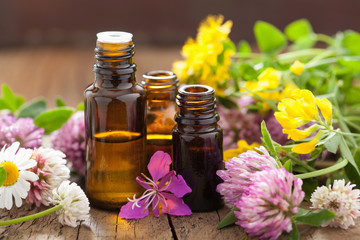
India has long been recognized for its rich biodiversity and tradition of natural remedies, making it a significant player in the global essential oils market. As essential oils continue to grow in popularity worldwide, Indian manufacturers are increasingly tapping into export opportunities. From sandalwood essential oil to the widely used chamomile and neroli, Indian essential oils are in high demand across various industries. This article explores how Indian essential oil manufacturers are positioning themselves in the global market and the factors driving their success.
The Growth of Essential Oils in India
Essential oils have been produced in India for centuries, with traditional methods passed down through generations. Today, India stands as one of the leading producers of essential oils, with a wide range of natural oils that cater to the global market. Modern essential oil manufacturers in India have combined ancient knowledge with contemporary technology to produce oils that meet international standards. This evolution has positioned India as a key supplier of essential oils globally.
Key Essential Oils Exported from India
India's rich diversity of flora allows it to produce various types of essential oils, each with unique properties and uses. Among the most sought-after are:
- Sandalwood essential oil: Known for its woody, calming scent, sandalwood oil is a luxury product with demand in perfumery and wellness industries.
- Neroli essential oil: Extracted from the bitter orange tree, neroli oil is a favorite in aromatherapy and cosmetics.
- Chamomile essential oil: Valued for its soothing properties, it’s widely used in skincare and relaxation therapies.
- Bergamot essential oil: Popular in perfumes and aromatherapy, bergamot oil is known for its uplifting citrus fragrance.
- Clary sage essential oil: Frequently used in both the wellness and skincare sectors, clary sage oil has a range of applications.
Why Indian Essential Oils Are in Demand Globally
India's essential oils are prized not only for their variety but also for their high quality. Indian essential oil manufacturers maintain strict quality control processes, ensuring that their products meet international standards. This focus on quality, combined with competitive pricing, has made Indian essential oils an attractive option for global buyers. Additionally, India offers a broad range of essential oils, allowing manufacturers to cater to various industries, from perfumes to cosmetics and wellness products.
Role of Essential Oil Manufacturers in India
The role of essential oil manufacturers in India is crucial in maintaining the country’s position as a global supplier. These manufacturers have adopted advanced extraction techniques to improve the yield and quality of their oils. Essential oils manufacturers in India also work closely with farmers to ensure a sustainable supply of raw materials. From small-scale artisans to large industrial producers, the diversity of manufacturers ensures that India can cater to both niche markets and mass production needs.
Top Export Markets for Indian Essential Oils
India’s essential oils are in high demand in several regions, including:
- North America: One of the largest importers of Indian essential oils, driven by the wellness and beauty industries.
- Europe: Known for its stringent quality standards, Europe remains a key market for Indian essential oils.
- Middle East and Asia-Pacific: Growing interest in natural products has fueled demand for Indian essential oils in these regions.
Challenges Faced by Indian Essential Oil Manufacturers
While the essential oil export market offers significant opportunities, manufacturers face several challenges:
- Regulatory hurdles: Different countries have varying regulations on essential oils, making it crucial for Indian exporters to comply with multiple standards.
- Competition from synthetic essential oils: The rise of synthetic alternatives presents a challenge to natural essential oils. Indian manufacturers must emphasize the natural purity of their products to maintain a competitive edge.
- Sustainability concerns: Ensuring the sustainable sourcing of raw materials, especially for popular oils like sandalwood, is critical for long-term success.
The Role of Essential Oil Suppliers India
Suppliers play an essential role in ensuring that the flow of oils from manufacturers to global markets remains smooth. Essential oil suppliers India are responsible for managing exports and distribution, ensuring that manufacturers can meet growing international demand without compromising on quality or delivery timelines.

Sustainability in the Essential Oil Industry
Sustainability is a key concern for the essential oil industry. Indian manufacturers are increasingly adopting sustainable farming practices and working with local communities to ensure that the harvesting of plants used in essential oil production does not harm the environment. This not only protects the biodiversity of India but also enhances the global reputation of Indian essential oils as ethically sourced products.
The Future of Indian Essential Oils Export Market
Looking ahead, the demand for natural products is expected to continue rising, providing growth opportunities for Indian essential oil manufacturers. Innovations such as new extraction methods and the development of new essential oil types will further strengthen India’s position in the global market.
Conclusion
The export of Indian essential oils is on the rise, driven by quality production, competitive pricing, and a growing global demand for natural products. Manufacturers and suppliers in India have positioned themselves as key players in the global market, but challenges such as sustainability and competition from synthetic oils remain. With continued innovation and a focus on sustainability, the future of Indian essential oils in the global market looks promising.
Recent Posts
- Resinoid Treemoss Super: Unveiling the Mossy-Woody Signature of Reconstituted Aromatics
- How to Blend Geranium Egyptian NNO with Citrus, Herbal and Woody Notes Effectively?
- How to Use Resinoid Vetiver in Agarbattis and Burning Industry?
- Exploring Resinoid Sandal AG: The Woody-Sweet Essence of Incense and Burning Applications
- Why Rose NNO+ is a Go-To Ingredient in Reconstitution Fragrance Blends?
- BMV Fragrances to Participate in Two Premier Global Exhibitions : SIMPPAR & Beautyworld 2025
- Saffron Extract: Blending Iranian Richness and Indian Precision
Copyright @ 2025 | BMV Fragrances Private Limited | All Rights Reserved
Website Design & Digital Marketing by webmasterindia.
